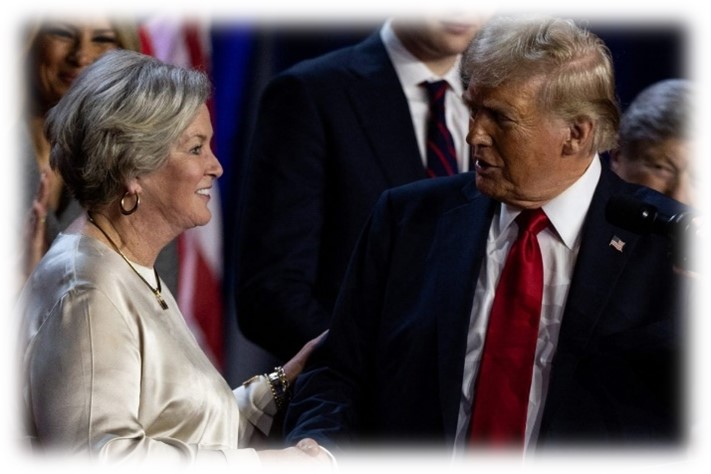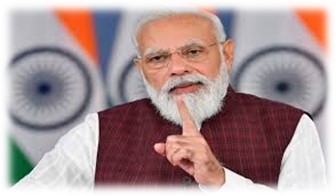Bangladesh’s student protests over a government job quota system evolved into a large-scale anti-government movement, leading to Prime Minister Sheikh Hasina’s resignation.
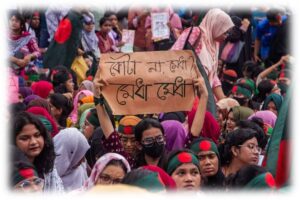
Kolkata: The High Court overturned Prime Minister Hasina’s government’s 2018 decision to do away with the quota system. The High Court declared that the 2018 government circular that cancelled the 30% limit for descendants of freedom fighters in government jobs was unlawful. It sparking the protest. The circular was issued in the wake of the 2018 Bangladesh quota reform movement.
The first protests were staged by university students in response to the court’s decision.
When Hasina declined to comply with their demands, citing the judicial processes, the students intensified their protests. She used the extremely harsh epithet “Razakar” to refer to the demonstrators, which is used to describe people who are accused of working with Pakistan’s army during the independence struggle in 1971.
On August 5, 2024, Sheikh Hasina, the troubled prime minister of Bangladesh, left the nation after weeks of severe protest that killed numerous lives.
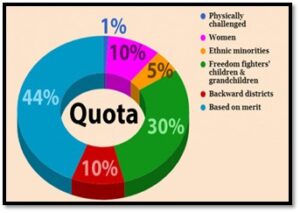
Reason behind the protest
The demonstrations are the result of long-standing discontent with a quota system that designated 56% of government jobs in Bangladesh for certain groups, including 30% for the descendants of those who fought for freedom during the 1971 War of Independence.
The nation’s sizable youth population, many of whom are unemployed, have found it extremely difficult to obtain highly sought-after public service employment due to this quota system.
It had also become a subject of controversy due to how many of those quota jobs went to supporters of the ruling Awami League party.
In 2018, Hasina lift the entire quota system due to tremendous pressure from a previous student campaign on the subject.
However, the nation’s high court declared that action unlawful in June 2024, which sparked further nationwide protests.
Then, in July, a number of staff and student walkouts occurred at Bangladesh’s public universities over proposed pension reforms that, if enacted, would require wage deductions.
The demonstrations were calm at first, but tensions were heightened by Hasina’s inflammatory speech in which she implied that the students were “Razakaar,” a term used to describe pro-Pakistan collaborators during Bangladesh’s War of Independence.
With police assistance, the Bangladesh Chhatra League, the Awami League’s armed branch, started using tear gas and live ammunition against students. Additionally deployed was the Rapid Action Battalion, a contentious paramilitary unit with a track record of enforced disappearances, extrajudicial executions, and torture.
After a video of one of the first to be killed – a university student named Abu Sayeed – circulated online, more joined the protests, leading to a further violent crackdown by police and armed groups. It is estimated that about 266 people, mostly students, were killed in the protests, including at least 32 children.
The government shut down telephones and the internet, instituted a curfew, and closed colleges and universities. In the meantime, student leaders were taken into custody and forced to revoke their demands.
However, this merely resulted in the announcement of a movement for complete non-cooperation and a large-scale protest movement calling for Hasina’s resignation right now.
The prime minister resigned and fled the country as thousands of demonstrators assembled for a protracted march to Dhaka in violation of the curfew.
Other reason behind the political protest
GDP has increased in Bangladesh under Hasina’s leadership; however, many Bangladeshis have not benefited economically from this. High young unemployment rates, a lack of opportunities, and skyrocketing inflation have all been persistent sources of conflict.
Meanwhile, scandals involving money laundering, bribery, and nepotism have plagued government officials despite the Awami League’s stance that corruption is unacceptable.
Additionally, the Awami League has undermined the nation’s democracy since winning a resounding victory in 2008. For example, the government terminated a 90-day caretaker administration in 2011 that let technocrats to conduct elections and supervise power transitions.
Additionally, opposition has been suppressed more. Human rights advocates, campaigners, and opposition leaders are increasingly being harassed and arrested. In the meantime, any form of criticism of the administration, including satire and posts on social media, has been made illegal.
Significance of 1971 Bangladesh war in present day
Bangladesh’s politics and identity are still heavily influenced by the War of Independence.
Decades prior, during the British division of the Indian subcontinent in 1947, its seeds were planted. As a result, the state of Bengal was violently split, with the eastern portion becoming East Pakistan.
Despite having distinct cultures and linguistic heritages, West Pakistan attempted to preserve its political and economic supremacy over East Pakistan after the split while also working to forge a single national identity based on its shared Muslim majority populations.
Policies to “purify” East Pakistan from Hindu influence and marginalize Bengali, the language spoken by 56% of East Pakistanis at the time, sparked a backlash that resulted in several student demonstrations and escalating calls for independence.
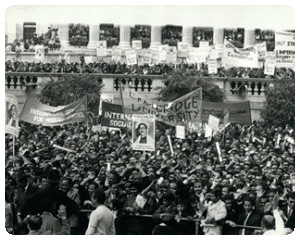
Between 500,000 and 3 million Bangladeshis were killed in a nine-month genocidal war with East Pakistan in 1971 as a result of a West Pakistani military invasion intended to quell pro-independence sentiments.
Bangladesh’s politics have been influenced by the events of that conflict ever since. Hasina’s Awami League and other political parties that have controlled the nation’s politics have regularly politicized their War of Independence credentials. 1971 has also been used by political leaders to delegitimize opposition parties, strengthen their positions, or legitimize their own.
Effect of Shekh Hassina’s exit on the country
Hasina’s resignation marks the temporary end of Awami League rule in Bangladesh. Bangladesh and other South Asian nations have been significantly influenced by political dynasties. Therefore, it is remarkable that the Awami League was rejected, and that many people are also rejecting other well-known political parties, such as the Bangladesh Nationalist Party, Jamaat-i-Islami, and the Jatiya Party.
Undoubtedly, these well-established groups will attempt to reorganize. Given popular opinion, the Awami League might not be able to organize well in the near future, but the others will try their hardest to take part in the anticipated upcoming elections.
For the time being, Bangladesh might have a chance to have new political voices and faces, possibly coming from the student movement.
